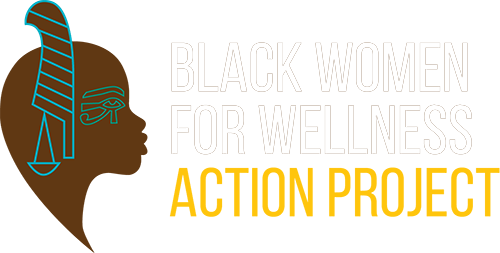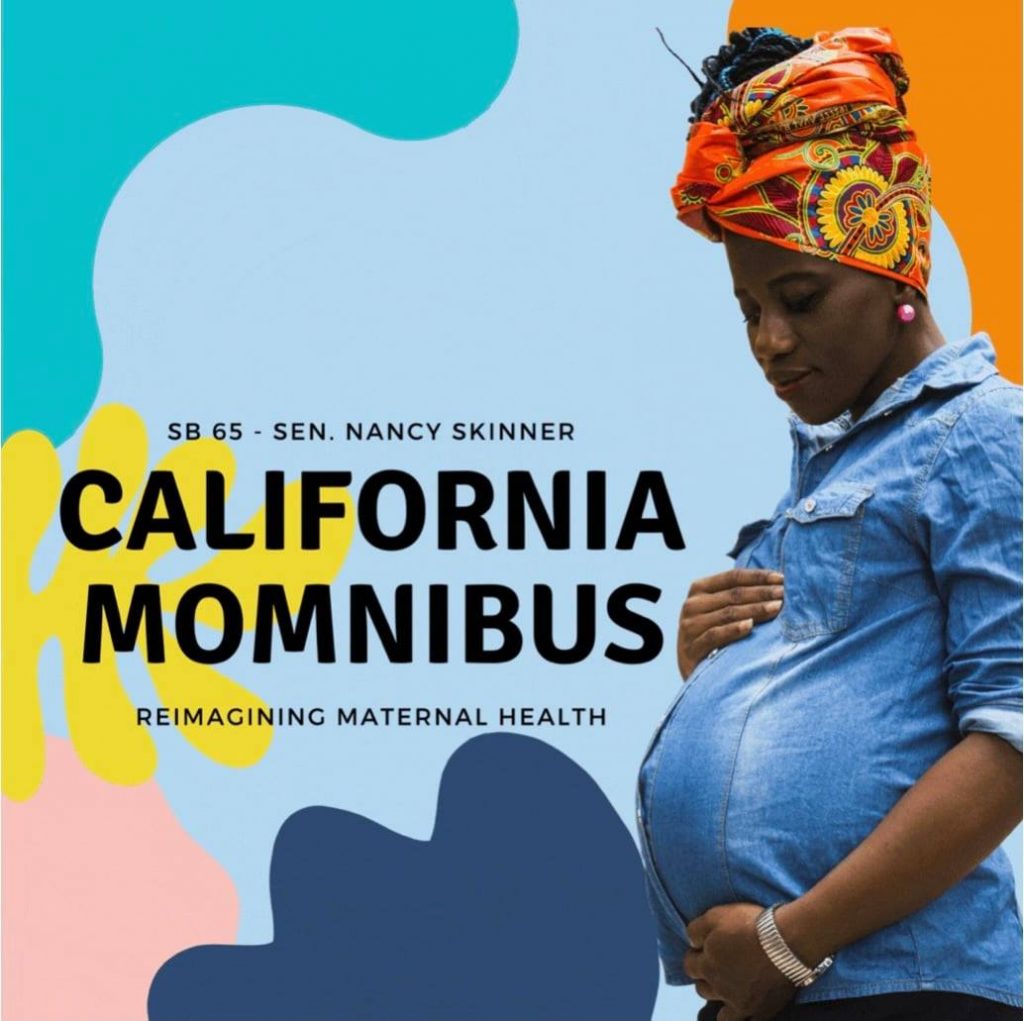Black mommas and babies face disproportionately high rates of maternal and infant mortality. For years, BWWAP has advocated for solutions to address this complex problem. We’ve tackled implicit bias in the health care system and expanded access to certified nurse-midwives. Now, in our most comprehensive legislative package yet, we helped re-envision what maternal health can look like in our state. In 2021, we were proud to be a lead co-sponsor of the CA Momnibus Act (SB65 – Skinner). This new law gives low-income families access to pregnancy support professionals like doulas, as well as financial support. Now, our team is in the field knocking doors and calling folks to educate them about their new benefits. Watch Governor Newsom sign the bill or read our OpEd to learn more.
Did you know…?
- Pregnancy related death rates for Black mothers in California are 4x the state average
- Compared with the average rate, Black babies are more than twice as likely to die
What does the new Momnibus Act do?
- It requires Medi-Cal to now cover doula care services. This is brand new. Before this bill passed, people would have to pay out-of-pocket if they wanted the support of a doula during or after pregnancy, which made this kind of care inaccessible for a lot of low-income families. Doulas can offer unique, culturally appropriate support that improves the health of mothers and babies– so it was really important for us to make sure all communities got access to this kind of care.
- It requires Medi-Cal to cover maternal health care for 12 months postpartum (in other words, for one year after the baby is born). Before this bill, Medi-Cal coverage only extended 60 days after birth– so this is a big improvement.
- It gives eligible pregnant people earlier access to CalWORKs aid. Now, folks can have access to this support at once pregnancy status is confirmed/verified.
- It gives eligible pregnant people an increase in their CalWORKs pregnancy supplement. Before this bill passed, eligible people received $47 to support them during pregnancy. Now, that amount has been increased to $100. This reflects the high costs of living in our state, and means that families can focus on their new baby and worry less about having enough money to cover their basic needs.
- It requires our state to empower a committee of community members and health care professionals to collect data and examine the role of racial disparities in maternal deaths and severe injury. This committee will then make recommendations for reducing racial and other disparities so that all mothers and babies get the care they deserve.
- It aims to expand the midwifery workforce by incentivizing midwifery schools to recruit from underrepresented populations. This is important because it means pregnant women will get care from professionals who reflect their own communities and cultures.
When do the Momnibus benefits kick in?
Not all benefits will start at the same time. This is common when new laws are passed, because it takes some time for the state to figure out how to implement the changes. The extra CalWORKS supplement will hopefully go into effect on May 1, 2022. It may be a bit longer before Medi-Cal starts covering doula services. There are some administrative pieces to put in place before this program can go live, but we are hoping that folks will have access to doulas starting in July, 2022.
Who will be eligible for these benefits?
Different components of the bill will affect different groups of people. Anyone who is pregnant and covered by Medi-Cal will have access to doula care. Several factors are considered for CalWORKS eligibility. It is not just one minimum income amount. Factors considered include income, family size and dependents, and pregnancy and employment status. For more information, visit the CalWORKS website. If you think you’re eligible for benefits under a certain program, we recommend contacting that program directly to make sure you qualify.
Why is data collection important?
Data collection is important for gaining a more accurate understanding of any issue. Data provides evidence of a problem, which means that it is more likely to be recognized as a problem and receive the attention and resources needed to fix it.
What is Doula Care?
Doulas are trained people, usually women, who support mothers during pregnancy and after childbirth. Doulas are not medical professionals, but they can play an important role in the birthing process by providing coaching and emotional support, and advocating for mamas to have the best experience possible.
What is Medi-Cal?
Medi-Cal is our state health insurance program. Many low-income people and families qualify for this program. The threshold to qualify is an annual income of less than $17,774 for an individual, or $36,570 for a family of four.
What is CalWORKs?
CalWORKs is a state program that provides cash assistance and services to eligible families that have at least one child in the home. Families are able to receive both short-term and long-term support, including money each month to help pay for housing, food, and other basic things.
Where can I go to learn more?
This is a brand new bill, so information about how it’s being implemented is still forthcoming. The Department of Health Care Services is the department implementing doula coverage and postpartum Medi-Cal extension, and you can check their website for information about those items. The CalWORKS website has information about how to check your eligibility and apply. You can also call them at (866) 613-3777.
What other legislation has BWWAP passed to support Black mommas and babies?
Senate Bill 464 (Mitchell)– the California Dignity in Pregnancy and Childbirth Act. This law requires all health care providers that take care of pregnant people to receive implicit bias training every two years. It also requires that patients are given information about how to report discrimination in health care services. Research confirms that discrimination and implicit bias contribute to the quality of care that Black folks receive and it has been identified as a reason for the disparity in pregnancy related deaths and health outcomes for Black pregnant mommas. Implicit bias is the idea that negative attitudes, stereotypes or beliefs about a group of people unconsciously affect our understanding and treatment of that group.
Assembly Bill 1237 (Dodd)– the Justice and Equity in Maternity Care Act. This law expands access to perinatal care providers by removing the physician supervision requirement for nurse-midwives. This means more people will have access to nurse-midwives. This is especially important in geographic areas of the state where there aren’t many doctors– currently, at least nine counties in California do not have an OB-GYN. Nurse-midwives are advanced practice nurses who have completed training in both nursing and a higher education program (obtaining either a master’s or doctoral degree) with a focus in midwifery.

